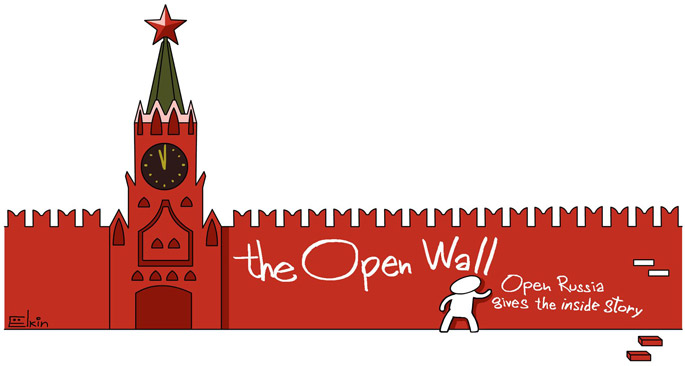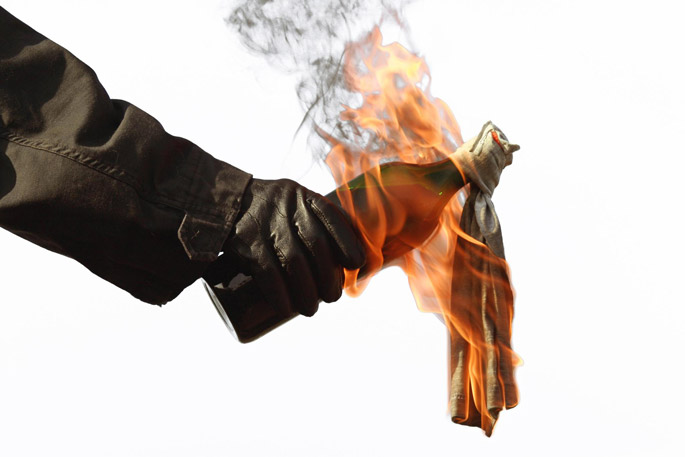“Majestically claiming what’s ours”

“Majestically claiming what’s ours”
The Kremlin has planted the seeds of violence, but now even they don’t like the harvest.

A horrific incident in Ulyanov has become one of the main news items across Russian media: a debt collector threw a Molotov cocktail through the apartment window of a debtor, leaving a two-year-old boy seriously burned.
The boy’s father had taken out a 4000-rouble ($51) loan to finance a purchase of medicines, but the sum he was due to return was ten times larger; in fact, even when he paid back 20,000 roubles, he was told to pay another 40,000. Unable to pay his debts on time, his family was punished.
As often happens in the wake of high-profile violent crimes, the bigwigs of the Russian law enforcement system have assumed control over criminal proceedings, with Federation Council chief Valentina Matvienko proposing to suspend collection agencies’ activities, and Vladimir Putin himself pledging to get to the bottom of what they’re doing.
This has become a high-profile issue. Many people have discovered that Russian collection agencies regularly resort to threats and violence. In their attempts to chase down debts, they may well fill front-door locks with foam sealant – and this goes not only for the debtors themselves but their neighbours as well. But that’s not all – they may advise their victims to “have their fire extinguishers at the ready,” instigate witch hunts on social media, set fire to prams left outside the debtor’s property, scrawl sepulchral crosses on their front doors, or threaten to blow up a kindergarten because a staff member hasn’t settled her debts.
Driven by desperation, people take out high-interest loans from microfinance institutions, and are often unable to pay off their debts on time. “Time” can mean only a few days before the clock starts ticking.
Collectors don’t shy from inflicting psychological and physical terror on their victims, and are developing a taste for violence. Of course, certain spheres of Russian existence have been dominated by violence for centuries. But violence and brutality are now becoming commonplace in peaceful, civilian life. More and more often nowadays, individuals wielding even a modicum of power are seeking to use it as if they were warlords, or thugs who have the run of some town in the Donbass, or special services personnel.
“Putin is majestically claiming what’s his” – this was the jubilant cry of radio and TV propagandists during the invasion of Crimea in 2014. For two years now, the determined seeking out of enemies, the ruthless ability to pressurise the weak, and the effective use of physical force have been held up as the touchstones of correct conduct. State propaganda glorifies its own power and uncompromising nature. And we shouldn’t be surprised by the fact that more and more Russians under the influence of this propaganda are also striving to seek out and punish an “enemy” and “majestically” claim what they consider to be theirs.



